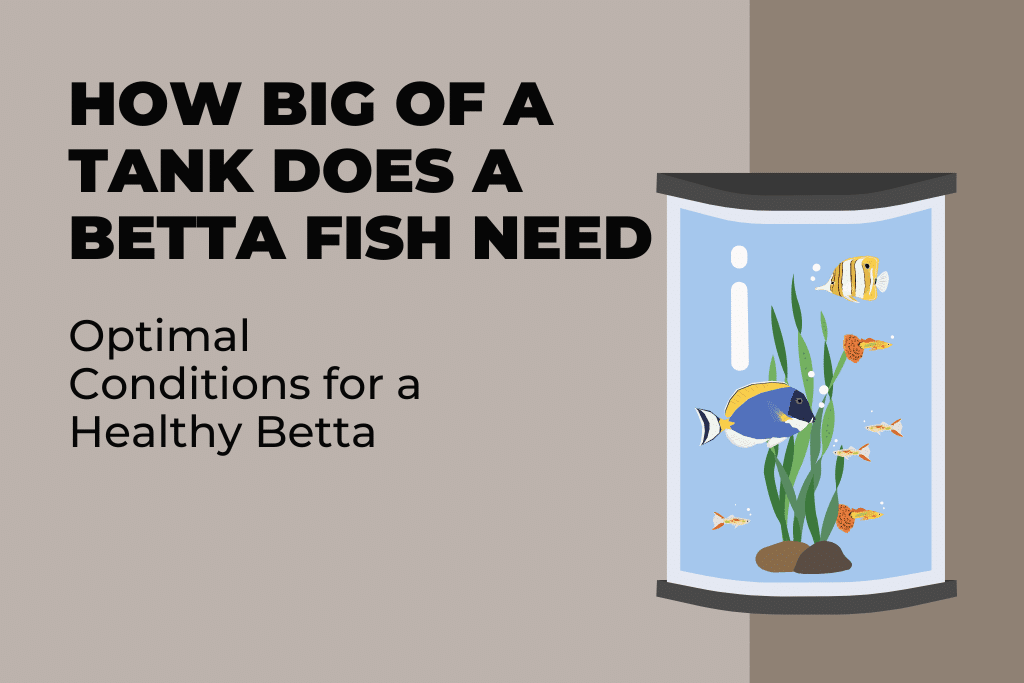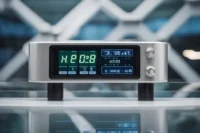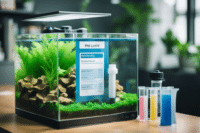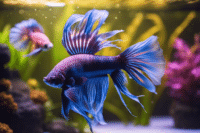Welcome to our blog! If you’re thinking about getting a betta fish, you’ve probably asked yourself, “How big of a tank does a betta fish need?” It’s a common question with many opinions floating around. A single betta fish needs a tank that holds at least 5 gallons of water. This may come as a surprise, especially if you’ve seen those tiny fish bowls people use. But trust me, giving your betta a bit more room to swim around will keep it much happier and healthier.
Betta fish, also known as Siamese fighting fish, hail from the warm, slow-moving waters of Southeast Asia. In their natural habitat, they have plenty of space to roam, hide, and explore. A small tank can cause stress and health problems for your betta, while a larger tank better simulates its natural environment and gives you room to add plants and decorations to keep your fish entertained.
Setting up the perfect betta habitat not only focuses on tank size but also on other essentials like filters, heaters, and proper lighting. Good water quality and a well-decorated tank can significantly improve your betta’s well-being. Remember, the key to a happy betta is mimicking its natural surroundings as closely as possible.
Key Takeaways
- Betta fish need a minimum of a 5-gallon tank.
- Larger tanks help mimic their natural habitat better.
- Proper setup includes filters, heaters, and decor.
Setting Up the Perfect Betta Habitat
Creating the perfect habitat for your betta fish involves choosing the right tank size, maintaining water quality, creating a comfortable environment, and ensuring proper heating and filtration. These steps are essential for keeping your betta healthy and happy.
Choosing the Right Tank Size
Betta fish thrive best in tanks that are at least 5 gallons. A larger tank provides more stable water parameters and gives your fish room to explore. Avoid using bowls or tiny tanks, as these can stress your betta and lead to health issues.
Types of Tanks:
- Glass Tanks: Durable and scratch-resistant.
- Acrylic Tanks: Lighter but prone to scratches.
- Tall Tanks: Offer vertical space but less surface area; not ideal for bettas.
Water Quality and Parameters
Maintaining excellent water quality is crucial. Betta fish need clean water with stable parameters:
- Temperature Range: 78-80°F; use a reliable heater.
- pH Level: Between 6.5 to 7.5.
- Ammonia/Nitrite: Should be zero to prevent harmful effects.
Regular water changes (25-50% weekly) help keep toxins low. Using a gravel vacuum can help clean the substrate and remove debris.
Creating a Conducive Environment
Creating a comfortable environment mimics a betta’s natural habitat. Use soft substrate like sand or fine gravel, which is gentle on their fins. Add plants and decorations to provide hiding spots and reduce stress.
Plants and Decorations:
- Live Plants: Java fern, Anubias, and Betta bulbs provide oxygen and shelter.
- Decorations: Smooth rocks and caves for exploration.
Avoid sharp or abrasive objects that can damage your betta’s fins.
Heating and Filtration Essentials
Heating: Bettas need warm water. A heater maintains a steady temperature. Choose an adjustable heater to fine-tune the tank’s temperature.
Filtration: A good filtration system is crucial for keeping the tank clean. Sponge filters are gentle and won’t create strong currents that can stress bettas. Aim for mechanical, chemical, and biological filtration to ensure a healthy environment.
- Mechanical Filtration: Removes debris.
- Chemical Filtration: Eliminates toxins.
- Biological Filtration: Encourages beneficial bacteria growth.
Ensure the filter isn’t too powerful, as strong currents can stress your betta.
Betta Fish Well-Being
To ensure your betta fish thrives, focus on their health, compatibility with tank mates, and access to the water’s surface. These factors play a crucial role in their happiness and longevity.
Health and Wellness
A 10-gallon tank or larger is ideal for betta splendens. This size allows for ample swimming space, which is crucial for their well-being. Small tanks can stress bettas, causing health problems and shorter lifespans.
Bettas need clean water and stable conditions. Regular water changes are essential; use an API Stress Coat Aquarium Water Conditioner to remove harmful chlorine and reduce stress. Additionally, avoid decorations with sharp edges to prevent injuries.
Ensure the water has slow currents. Strong currents from filters can be exhausting for bettas and damage their delicate fins. Your betta will be most comfortable with gentle water movements.
Choosing Tank Mates Carefully
Betta fish have a territorial nature, especially males. Therefore, selecting tank mates carefully is crucial. Avoid putting them with other aggressive fish or those with flashy fins, like guppies, which can provoke fights.
Female bettas can live together in a betta sorority tank but need monitoring for aggression signs. Safe tank mates typically include peaceful fish like corydoras or neon tetras.
Keep an eye on your betta’s behavior. If you notice frequent chasing or nipping, it might be best to separate them to maintain a peaceful environment and prevent stress.
Lid and Surface Access
Bettas are known as labyrinth fish, meaning they breathe air from the water’s surface. This unique trait means that it’s essential to have easy surface access in their tank. Make sure the waterline is a few inches below the tank’s top.
Betta fish are also jumpers. They can leap out of the water when startled or searching for food. A lid on the tank prevents accidents, but ensure it has ventilation to allow fresh air to reach the water surface.
Conclusion
Choosing the right tank size for your betta fish is really important. The size of the tank can impact your fish’s health, happiness, and lifespan.
Minimum Tank Sizes:
- A small betta can survive in a 2.5-gallon tank.
- Larger bettas or Giant bettas need at least a 10-gallon tank.
Recommended Sizes:
- Generally, 5 gallons is better for most betta fish.
- For the best experience, a 10-gallon tank is ideal.
Why Bigger Tanks?
- More Space: Betta fish are active and love to explore.
- Less Stress: Small tanks can stress fish, leading to poor health.
- Better Water Quality: Larger tanks are easier to maintain.










